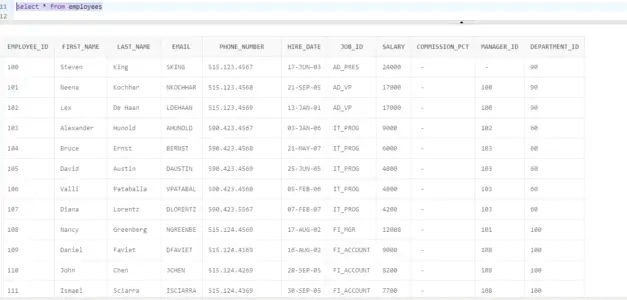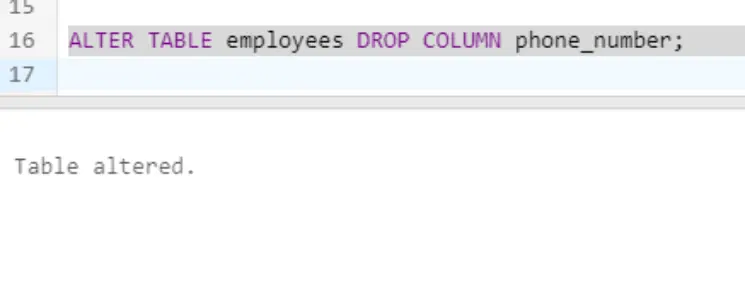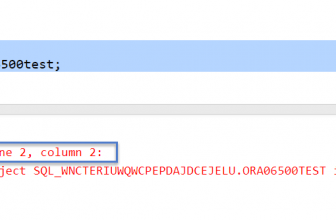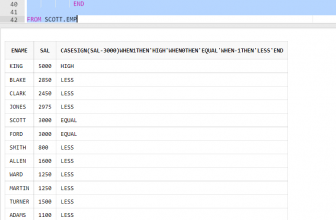
Table of Contents
Introduction:

In the world of relational databases, SQL (Structured Query Language) plays a vital role in managing and manipulating data. When it comes to Oracle Database, one common task is deleting columns from tables. This blog post aims to provide a comprehensive guide on how to delete columns in SQL, specifically in the context of Oracle Database. We will cover the necessary syntax, considerations, and provide practical examples to help you understand the process.
Overview of Deleting Columns in SQL:
Deleting columns from a table is a common requirement in database management. Whether you need to remove unnecessary data or restructure your tables, SQL provides a straightforward way to accomplish this task. In Oracle Database, you can use the ALTER TABLE statement to delete columns. Let’s use the example of Employee table
Syntax for Deleting Columns in Oracle Database:
The syntax for deleting columns in Oracle SQL is as follows:
sql> ALTER TABLE table_name
DROP COLUMN column_name;
Considerations before Deleting Columns:
Before deleting columns, it’s crucial to consider the following points:
a. Data Preservation:
Deleting a column permanently removes all data stored within it. Ensure that you have a backup of any crucial data or consider transferring the data to another column or table.
b. Dependencies:
Check for any dependencies on the column you plan to delete. If the column is referenced by other tables, views, or procedures, make sure to update or remove those dependencies before deleting the column.
c. Constraints:
Verify if the column has any constraints, such as primary key, foreign key, or unique constraints. You might need to drop or modify these constraints before deleting the column.
Examples of Deleting Columns in Oracle SQL:
a. Deleting a Single Column:
To delete a single column named “column_name” from a table called “table_name,” use the following syntax:
sql > ALTER TABLE table_name
DROP COLUMN column_name;
Example: Let’s consider a table called “employees” with a column named “phone_number.” To delete the “phone_number” column, the SQL statement would be:
sql> ALTER TABLE employees
DROP COLUMN phone_number;

Result
Phone_number col is not there when you describle or select *.

b. Deleting Multiple Columns:
If you need to delete multiple columns, simply list them within the ALTER TABLE statement, separating them with commas.
Example: Suppose we want to delete both the “phone_number” and “address” columns from the “employees” table. The SQL statement would be:
sql> ALTER TABLE employees
DROP phone_number, address;

Result

c. Deleting a Column with Constraints:
When a column has constraints, such as primary key, foreign key, or unique constraints, you need to handle them before deleting the column. You can either drop the constraints or modify them as necessary.
Example: Let’s say we want to delete a column called “department_id” from the “employees” table, which is referenced by a foreign key constraint. Before deleting the column, we need to drop the foreign key constraint using the following SQL statements:
sql> ALTER TABLE employees
DROP CONSTRAINT fk_department_id;
ALTER TABLE employees
DROP COLUMN department_id;
Conclusion:
In this blog post, we explored the process of deleting columns in SQL within the context of Oracle Database. We discussed the syntax for deleting columns, important considerations before deletion, and provided practical examples. Remember to take precautions when deleting columns to preserve data integrity and handle any dependencies or constraints. By following the guidelines outlined in this post, you can confidently delete columns in Oracle SQL while maintaining the integrity of your database.









